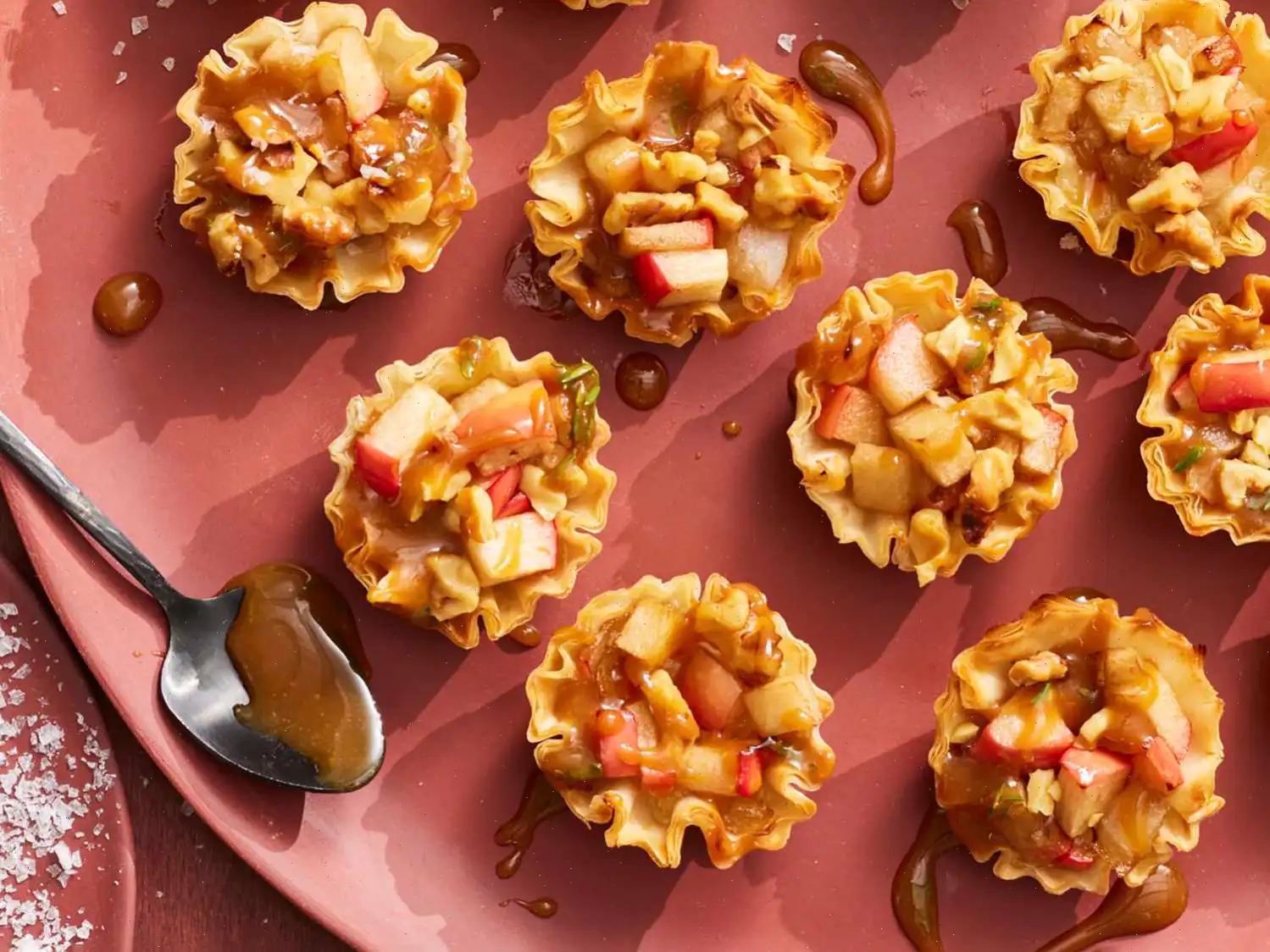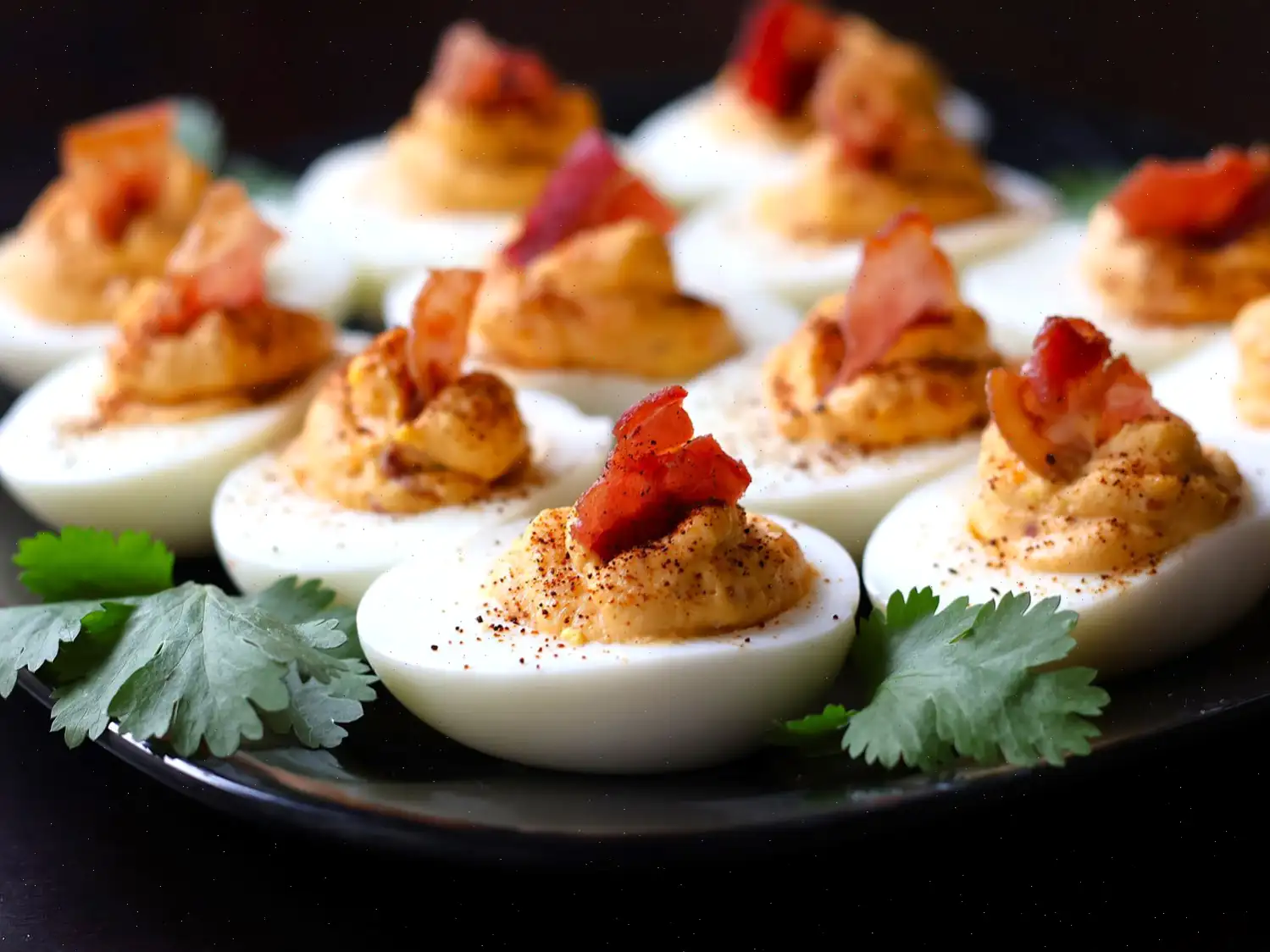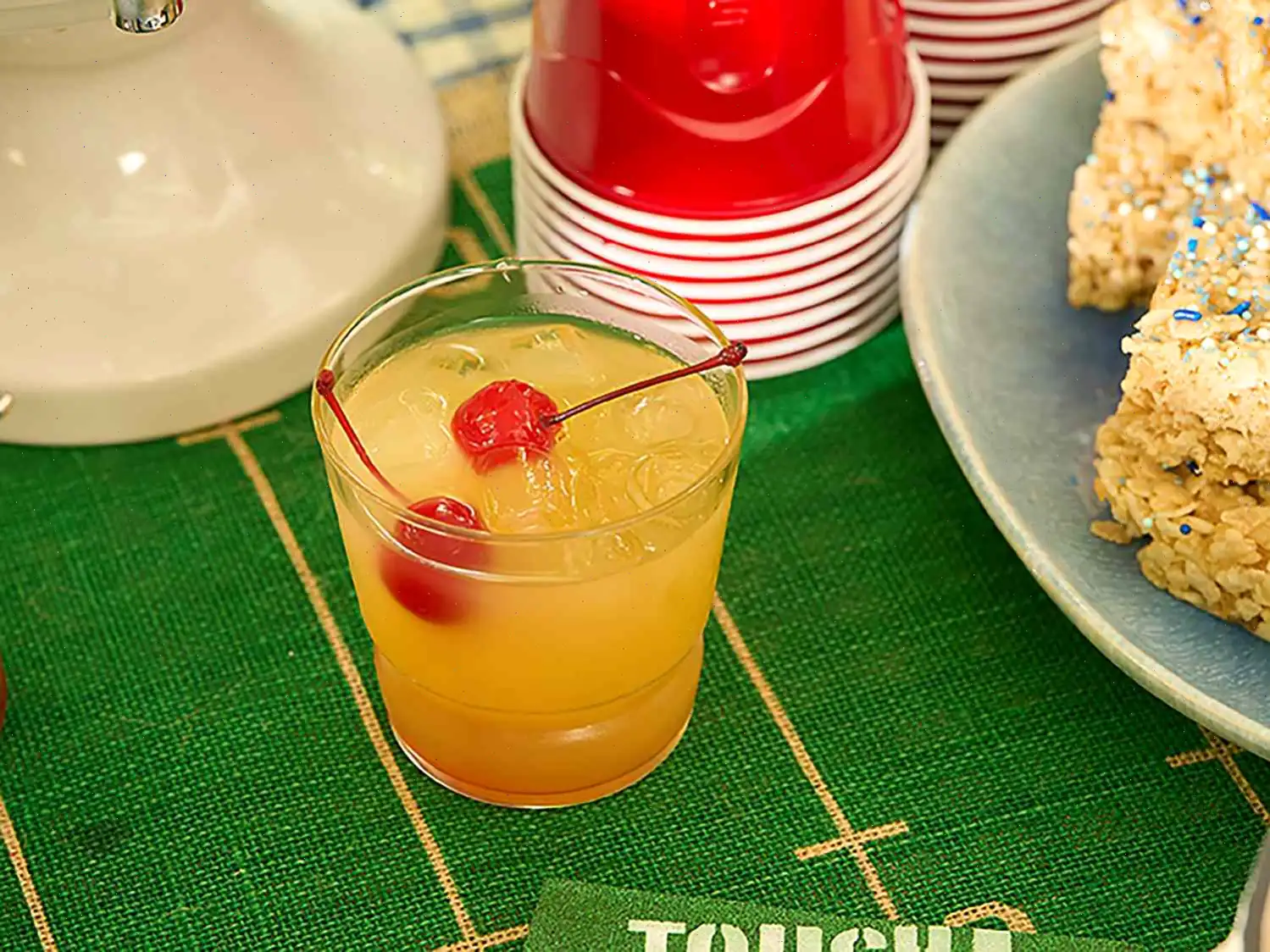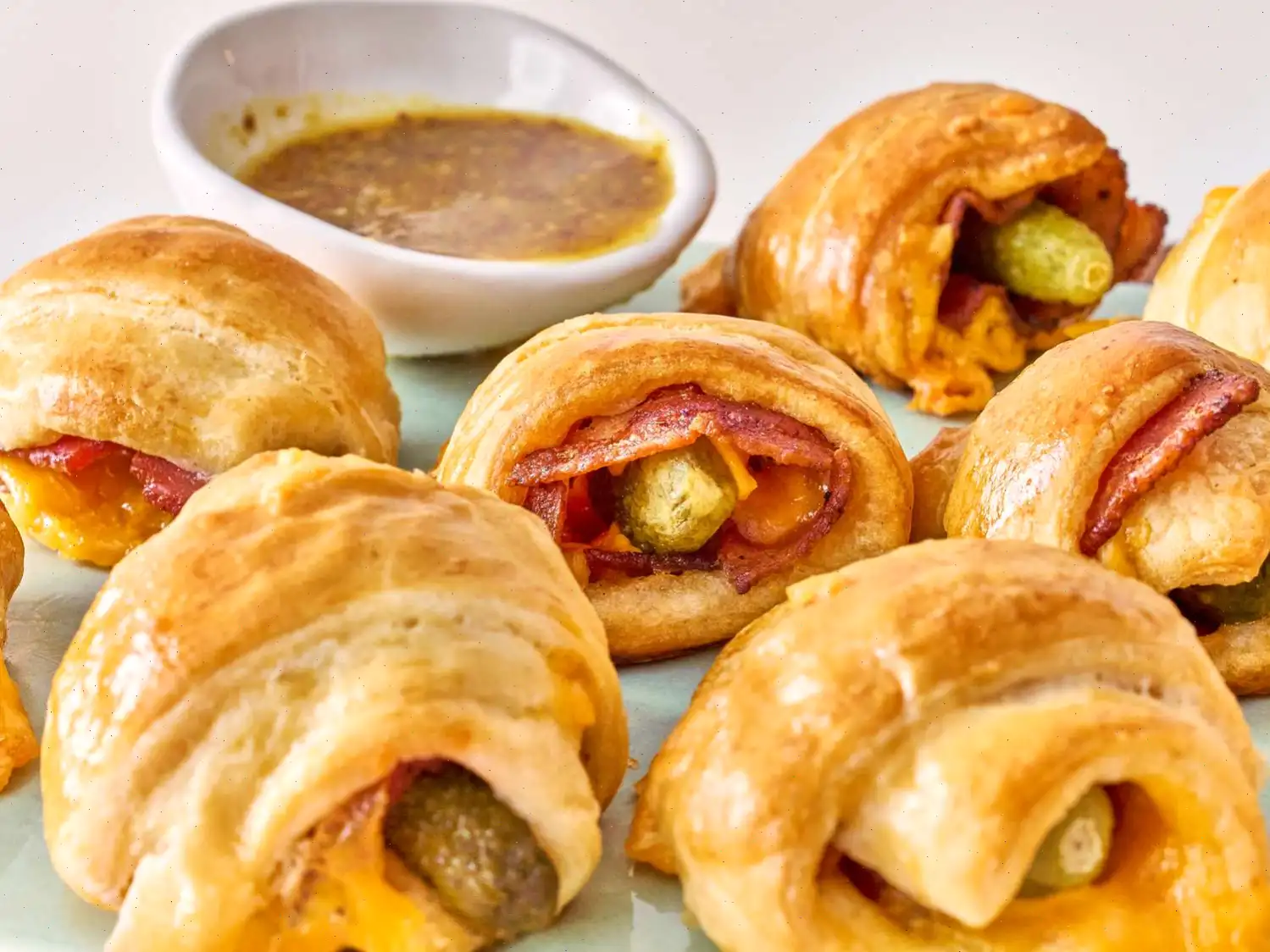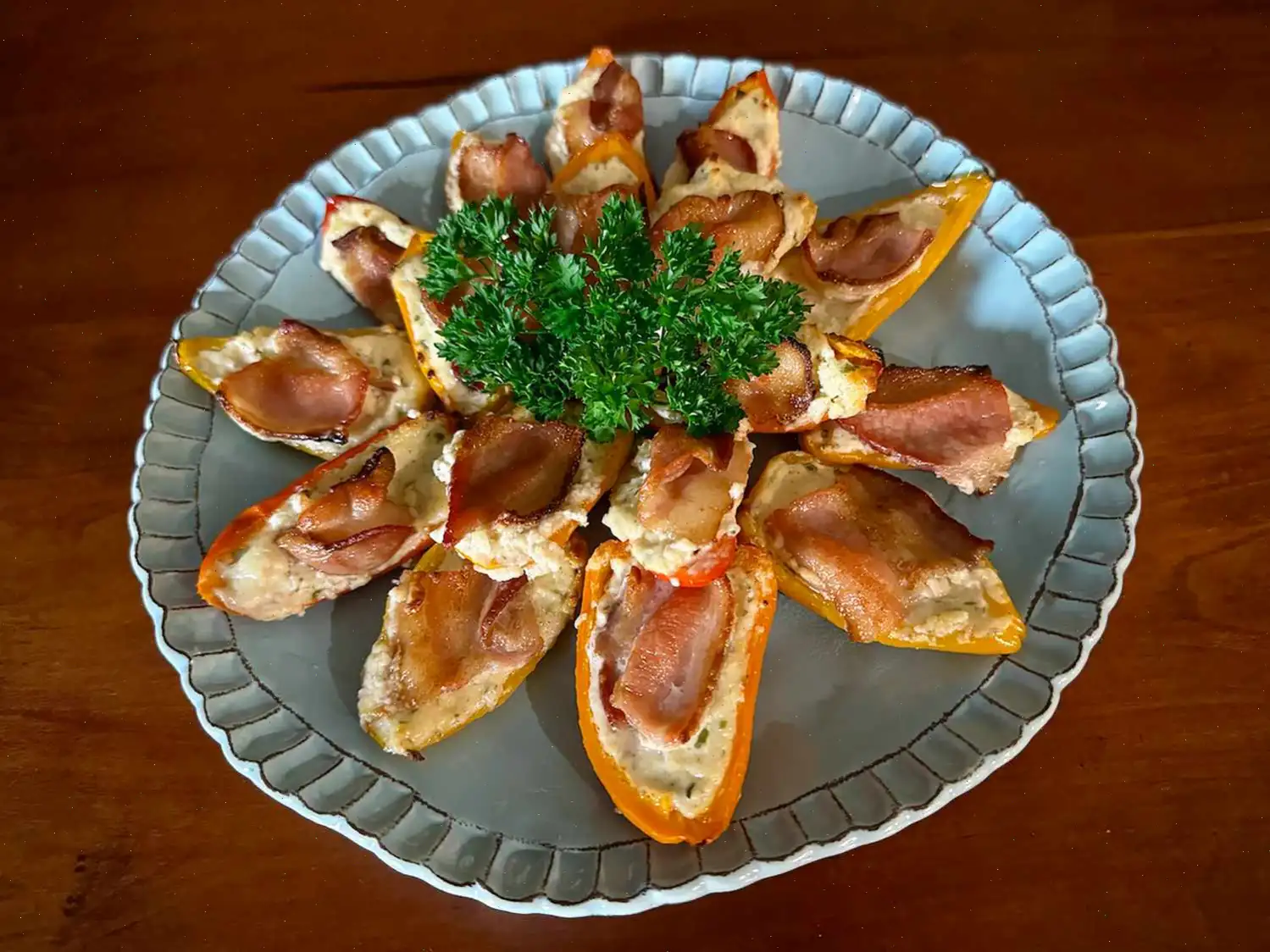
Rollitos de huevo Philly Cheesesteak de Justin Rowland
Deliciosos y sabrosos, los rollos de huevo con Philly Cheesesteak de Justin Rowland son una versión única de un clásico favorito. Están llenos de tiras tiernas de carne, queso derretido y cebollas salteadas, todo envuelto en una crujiente envoltura de rollo de huevo. Estos aperitivos serán un éxito en cualquier reunión. Sírvelos con una salsa para mojar ácida para un snack realmente inolvidable que hará que tus invitados pidan más.
Ingredientes
- 1 cucharada de aceite de oliva virgen extra
- 1 cebolla blanca mediana, finamente picada
- 350 gramos de carne ribeye en lonjas finas
- Ajo en polvo, al gusto
- Sal, al gusto
- Pimienta negra molida, al gusto
- 1 paquete de envolturas de egg roll (aproximadamente 14 oz)
- 4 rebanadas de queso americano blanco, cortadas a la mitad
- 2 huevos grandes, batidos
- Aproximadamente 2 tazas de aceite para frer (o suficiente para sumergir los rollos)
Salsa para mojar
- 1/4 taza de ketchup
- 1/4 taza de mayonesa
Instrucciones
- En una sartn amplia, calienta a fuego medio. Agrega el aceite de oliva y, cuando est caliente, incorpora la cebolla picada. Cocina por unos 5 minutos, revolviendo de vez en cuando, hasta que la cebolla se ablande y tome un ligero color dorado.
- Agrega las lonjas de ribeye a la sartn. Espolvorea el ajo en polvo, la sal y la pimienta al gusto. Cocina durante unos 10 minutos, removiendo ocasionalmente, hasta que la carne se dore y se suavice.
- Retira la mezcla de la sartn y ponla en un bol. Deja enfriar un poco mientras preparas los rollos.
- Coloca una envoltura de egg roll en tu superficie de trabajo, formando un rombo. Pon medio trozo de queso en el centro de cada envoltura.
- Pinta ligeramente los bordes con el huevo batido para ayudar a sellar el rollo. Luego, lleva el extremo inferior hacia arriba, pliega los lados hacia el centro y enrolla de manera apretada hasta cerrar el paquete.
- Repite el proceso con las dems envolturas hasta que termines con todo el relleno.
- En una olla profunda o cazuela, calienta el aceite a 180C (350F), asegurndote de que sea suficiente para cubrir los rollos. Si tienes termmetro de cocina, mejor para mantener la temperatura constante.
- Coloca de 2 a 3 rollitos a la vez en el aceite caliente, dejndoles espacio para frerse de manera uniforme. Cocina cada lado durante unos 2 a 5 minutos, o hasta que la superficie se ponga dorada y crujiente.
- Una vez listos, retira los rollos y ponlos sobre papel absorbente para eliminar el exceso de aceite.
- En un tazn pequeo, mezcla el ketchup y la mayonesa hasta obtener una salsa suave. Esta ser tu salsa cremosa para mojar.
- Corta los rollitos en diagonal para servirlos ms fcilmente y acompalos con la salsa preparada.
Informacin Nutricional (Aprox. por Porcin)
- Caloras: 840
- Grasa Total: 46g (59%)
- Grasa Saturada: 14g (69%)
- Colesterol: 192mg (64%)
- Sodio: 1215mg (53%)
- Carbohidratos: 67g (24%)
- Fibra: 2g (8%)
- Azcares: 6g
- Protena: 39g (78%)
- Vitamina C: 2mg (2%)
- Calcio: 353mg (27%)
- Hierro: 6mg (35%)
- Potasio: 514mg (11%)
Los valores porcentuales estn basados en una dieta diaria de 2,000 caloras, y pueden variar segn las necesidades nutricionales individuales.
El Philly cheesesteak, un clsico estadounidense por excelencia, tiene su origen en Filadelfia, Pensilvania, a principios de la dcada de 1930. El sndwich original fue creado por Pat y Harry Olivieri, quienes servan ribeye finamente cortado en un pan hoagie largo acompaado de cebollas salteadas. A lo largo de las dcadas, este sencillo pero sabroso sndwich inspir innumerables variaciones, incluida la innovadora versin de Justin Rowland: el Philly cheesesteak egg roll. Al envolver los ingredientes tradicionales en una crujiente envoltura de rollo de huevo, Rowland transform este popular platillo de comida callejera en un aperitivo conveniente que combina sabores de la costa este con una presentacin inspirada en la cocina asitica.
Caractersticas Regionales
Los Philly cheesesteak egg rolls estn profundamente arraigados en la identidad culinaria de Filadelfia, pero han ganado popularidad a nivel nacional. La ciudad es conocida por su dedicacin a los ingredientes frescos y la carne de alta calidad, y estos egg rolls mantienen esa autenticidad, mientras se adaptan a un estilo ms porttil y fcil de comer con las manos. En Filadelfia, es comn encontrar comedores locales y modernos gastropubs que los sirven como botanas en los bares, reflejando el amor de la regin tanto por la comida casual como por los platillos reconfortantes e innovadores. El uso de queso americano, cebollas y ribeye desmenuzado mantiene el platillo fiel a sus orgenes en Filadelfia, aunque se adentre en el terreno de la cocina fusin.
Diferencias con Platos Similares
A diferencia de un egg roll tradicional, que generalmente contiene cerdo, repollo y zanahorias, la versin Philly cheesesteak reemplaza estos ingredientes con carne de res sabrosa, queso derretido y cebollas. Tambin difiere del clsico sndwich cheesesteak en su textura: la crocancia de la envoltura frita ofrece un contraste satisfactorio con el interior suave y cremoso. Mientras que otros bocadillos de fusin intentan combinar cocinas, la distincin clave aqu es la preservacin del perfil de sabor original del sndwich, mientras se introduce una experiencia culinaria completamente nueva.
Contexto Tpico de Servicio
Los Philly cheesesteak egg rolls se sirven comnmente como aperitivos o bocadillos en bares. Son una opcin popular en bares deportivos, festivales de comida y reuniones informales donde se prefieren opciones fciles de comer con las manos. A menudo se sirven acompaados de una simple salsa para mojar, como ketchup y mayonesa, lo que los convierte en un excelente inicio para una comida o un bocadillo para fiestas. Algunos restaurantes tambin los ofrecen como parte de un men estilo tapas, permitiendo que los comensales los disfruten junto con otros platillos innovadores de la cocina fusin americana-asitica.
Datos Interesantes
- La adaptacin de rollo de huevo permite que el cheesesteak sea fcil de transportar, lo que lo hace adecuado para comida para llevar y catering.
- Aunque el queso americano es tradicional, algunos chefs experimentan con provolone o Cheez Whiz para un sabor ms intenso.
- La combinacin de dos culturas culinarias el clsico sndwich Philly y el egg roll asitico demuestra el potencial creativo de la cocina fusin en la cocina estadounidense moderna.
- Estos egg rolls se han convertido en un favorito popular en las redes sociales gracias a su exterior dorado y crujiente y su interior pegajoso y derretido.
Conclusin
Los Philly Cheesesteak Egg Rolls de Justin Rowland demuestran cmo los platillos clsicos pueden evolucionar respetando sus races, ofreciendo una versin moderna y divertida de un plato tradicional de Filadelfia. Esta fusin de sabores de la costa este y la presentacin de la cocina asitica ha conquistado tanto a los amantes de la comida como a los fanticos de las redes sociales, consolidndose como una opcin deliciosa y creativa.
Puedes escuchar esta receta en formato de audio de IA. Simplemente haz clic en el botón de reproducción a continuación para escuchar el contenido en el formato que mejor te convenga. ¡Es una excelente manera de absorber información sobre la marcha!
Preguntas frecuentes sobre Rollitos de huevo Philly Cheesesteak de Justin Rowland
Compartir
Comentarios
Kimberly Gomez
08/21/2023 05:09:10 PM
¡Delicioso! Añadí pimientos morrones picados finamente junto con las cebollas.


